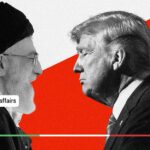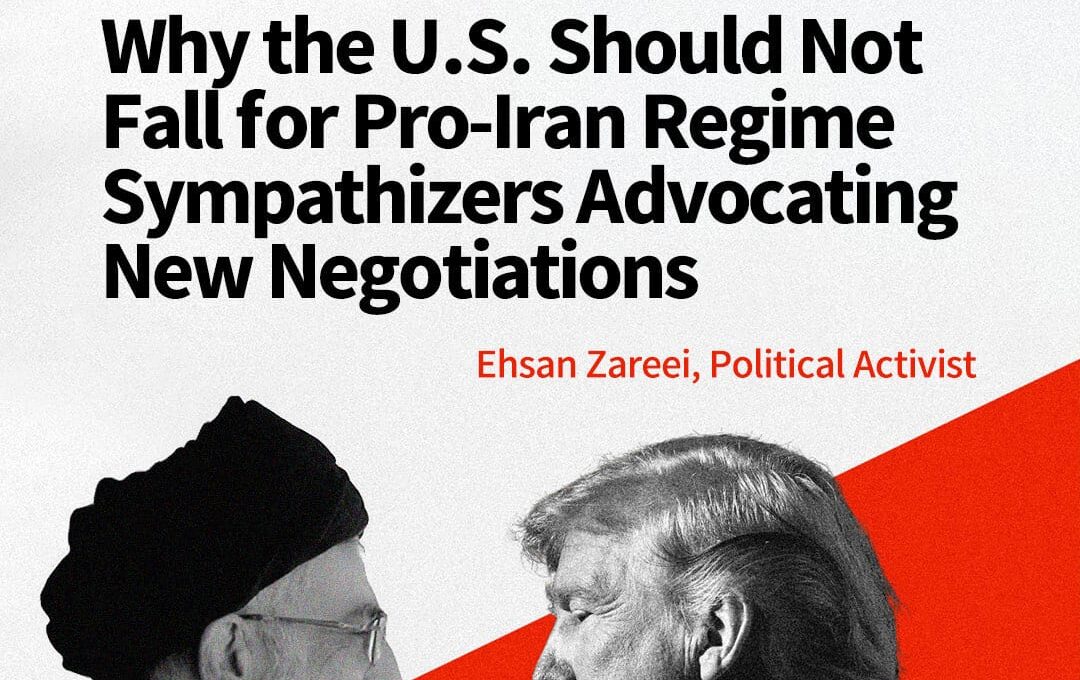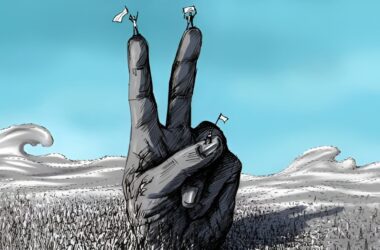In recent weeks, calls for renewed negotiations with the Islamic Republic of Iran have gained traction in some Western political circles. Advocates for engagement argue that dialogue is the path to de-escalation and stability in the Middle East. However, such optimism ignores the regime’s long-standing pattern of manipulation, hostility, and bad faith. Any push for new negotiations under current circumstances not only risks emboldening the regime but also undermines efforts to counter its destabilizing agenda.
The Islamic Regime’s Hostility Is Ingrained, Not Negotiable
Since its inception in 1979, the Islamic Republic has built its identity on opposing the “Great Satan,” the United States, and the broader Western world. This animosity is not a rhetorical device but a defining characteristic of the regime’s identity. Over decades, the Ayatollahs have used this enmity to justify attacks on U.S. troops, support for terrorist organizations, and their pursuit of a destabilizing regional influence. Any negotiation must confront this fundamental hostility. Yet, past efforts have shown the regime is adept at using diplomacy to conceal its intentions.
The Reformist vs. Hardliner Myth
One of the most persistent myths surrounding the Islamic regime is the supposed divide between reformists and hardliners. This narrative, often promoted by regime sympathizers, portrays reformists as moderates willing to engage with the West and implement meaningful change, while hardliners are viewed as the unyielding enforcers of the regime’s ideology.
In reality, this dichotomy is a carefully crafted illusion. Both factions operate within the framework of the Islamic Republic and are ultimately loyal to the Supreme Leader and the principles of the Islamic Revolution. The difference lies in their methods of executing the regime’s agenda.
Hardliners pursue the regime’s goals with brutal efficiency, unapologetically using violence, repression, and outright defiance of international norms to maintain control. Meanwhile, so-called reformists execute the same agenda but with an added layer of duplicity, attempting to whitewash the regime’s actions to gain sympathy and concessions from the West. Reformists serve as the regime’s public relations arm, portraying themselves as agents of change while ensuring that the regime’s survival and interests remain intact.
This charade is designed to manipulate Western governments into believing that engaging with reformists could lead to moderation. In reality, it merely provides the regime with time and resources to further entrench its power and advance its aggressive ambitions.
The IRGC’s Central Role
The Islamic Revolutionary Guard Corps (IRGC) is not merely a military force; it is the backbone of the regime’s power. With influence over Iran’s economy, judiciary, media, and even cultural sectors, the IRGC operates as a shadow state. It also controls Iran’s formal military, ensuring no meaningful opposition can arise within the country’s armed forces. Negotiations with the Islamic regime invariably empower the IRGC, as any financial or diplomatic concessions funnel directly into its coffers, funding further repression domestically and terrorism abroad.
A System Without Accountability
Iran’s political and judicial systems are designed to suppress dissent and maintain the regime’s grip on power. The regime holds what it calls “elections,” but these are far removed from genuine democratic processes. Candidates are pre-screened by the Guardian Council to ensure they are loyal to the Supreme Leader and the principles of the Islamic Revolution, leaving no room for genuine opposition or reform. These so-called elections are a performance meant to deceive the world into believing that the Islamic regime is a democracy simply because it holds a vote.
This misuse of modern democratic concepts, such as elections, is part of a broader strategy to mislead Western governments and international observers. It creates the illusion of legitimacy while masking a system where power is concentrated in the hands of unelected clerics and their IRGC enforcers. The judiciary, similarly, operates as an arm of the regime, silencing opposition and punishing dissent. Media is entirely restricted, leaving zero room for public accountability.
Negotiations with such a regime are inherently flawed, as its representatives are not accountable to the Iranian people but only to the theocratic dictatorship.
Failed Negotiations: A Pattern of Deception
History provides ample evidence of the regime’s duplicity in negotiations. The Islamic regime has a consistent pattern of using negotiations not as a genuine pathway to compromise but as a means to stall for time. By engaging in protracted and ultimately fruitless talks, the regime creates breathing room to advance its ballistic missile and nuclear programs. The 2015 Joint Comprehensive Plan of Action (JCPOA) is a prime example. While the deal temporarily restricted certain aspects of the regime’s nuclear activities, it failed to address their missile development or curb their broader malign behavior.
In the years following the JCPOA’s signing, the regime ramped up its ballistic missile testing and accelerated its nuclear research, pushing the limits of the agreement while benefiting from sanctions relief. The regime’s duplicity was clear: negotiations served as a smokescreen to secure time and resources to advance its military and strategic objectives. Renewed talks today would definitely follow the same pattern, giving the regime the space to refine its missile and nuclear capabilities while presenting itself as a willing partner for peace.
The Role of Regime Sympathizers
Those pushing for new negotiations often present themselves as advocates for peace and stability. In reality, many are either unwittingly or deliberately aiding the regime’s survival strategy. By urging concessions and downplaying the regime’s actions, these sympathizers enable the Islamic Republic to regroup, rearm, and refocus its efforts against Israel and the U.S.
Stand Firm Against Deception
The West, especially the United States, must recognize that engaging with the Islamic Republic is a futile endeavor. Diplomatic overtures that ignore the regime’s ideological foundations, structural realities, and historical behavior are doomed to fail. Instead, a strategy that combines maximum pressure with support for the Iranian people’s aspirations for freedom and democracy offers a far more effective path forward.
Falling for the regime’s or its sympathizers’ calls for new negotiations is not just naïve—it’s dangerous. It risks empowering a theocratic dictatorship that has shown, time and again, its disdain for peace, democracy, and human dignity. The stakes are too high to repeat the errors of the past.
Ehsan Zareei – political activist, advocate for secular democratic Iran







